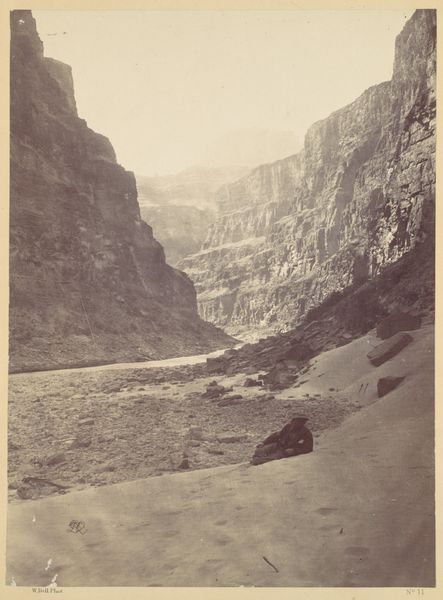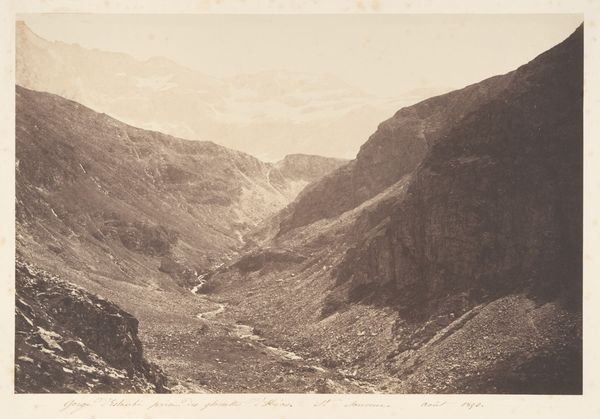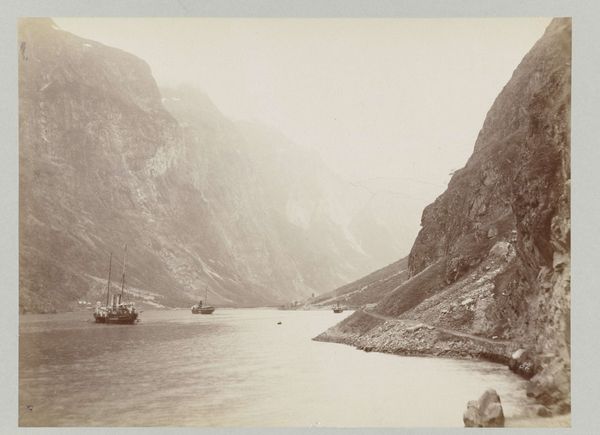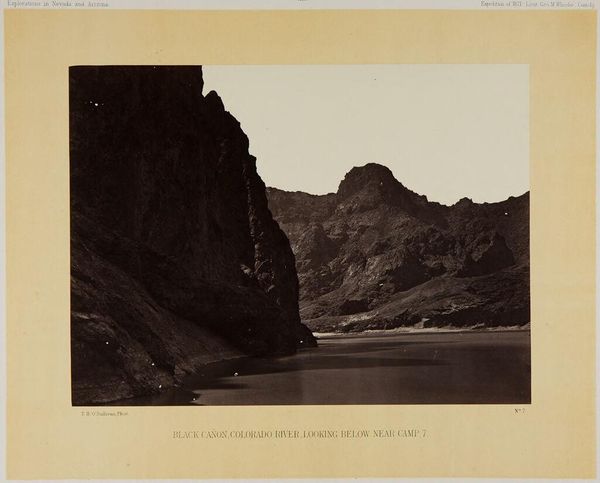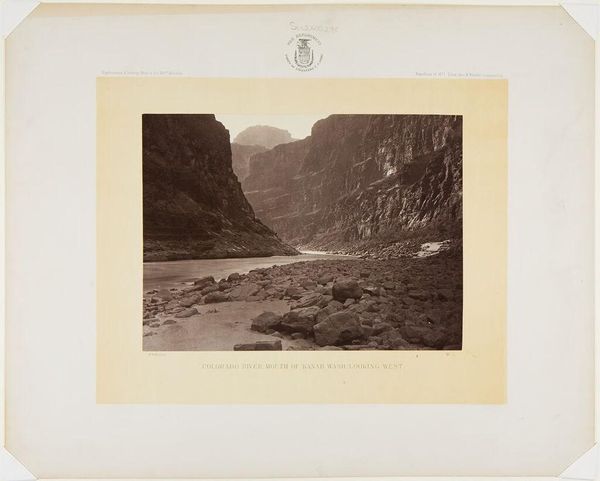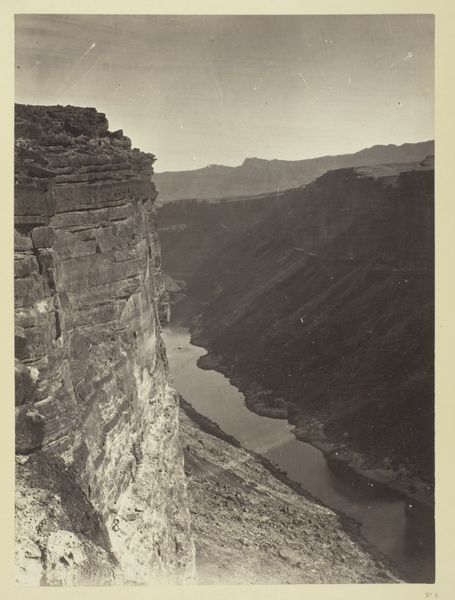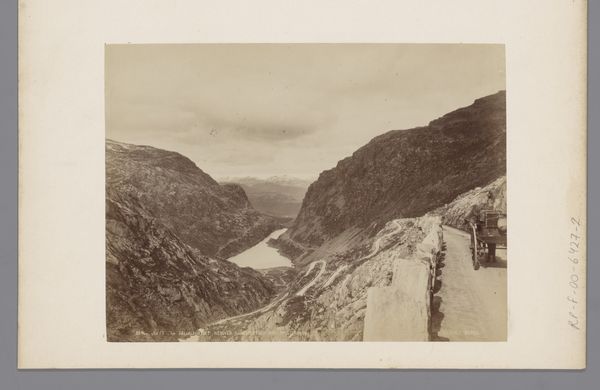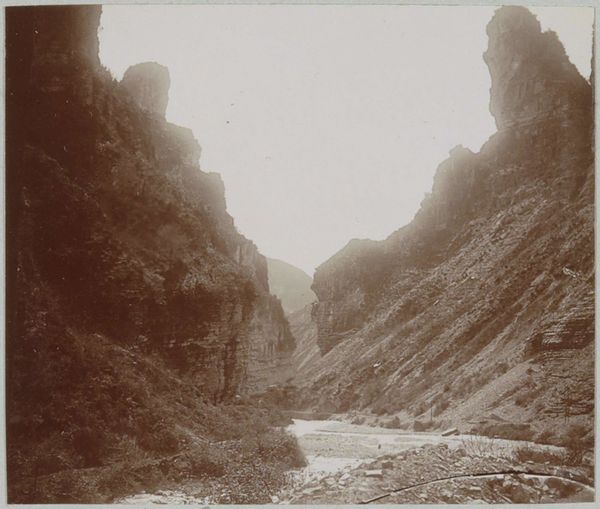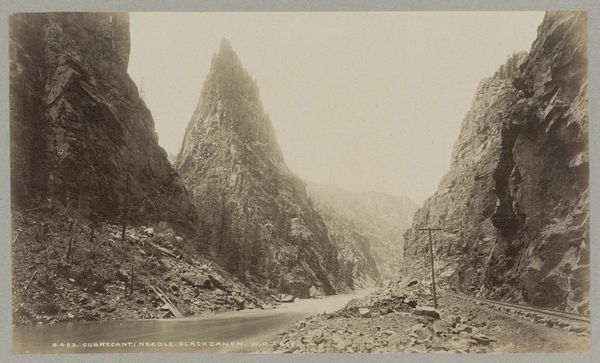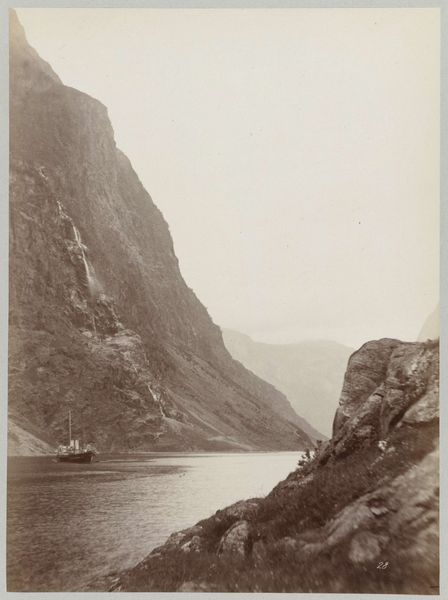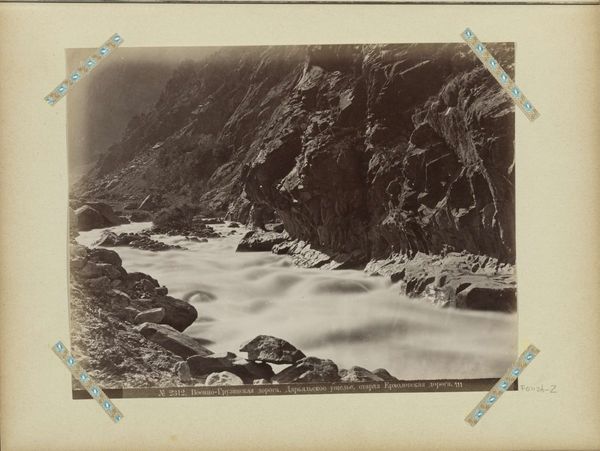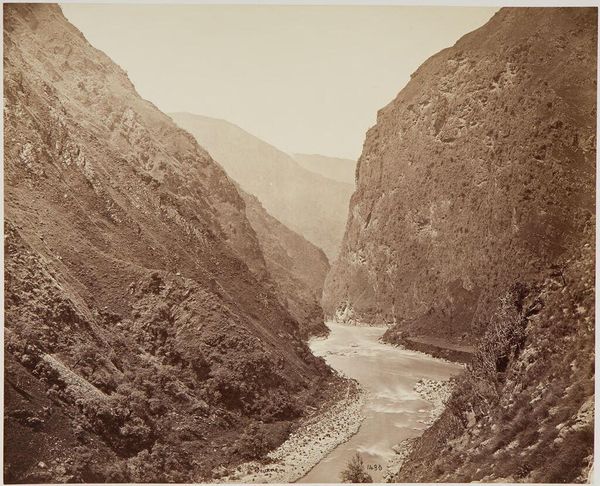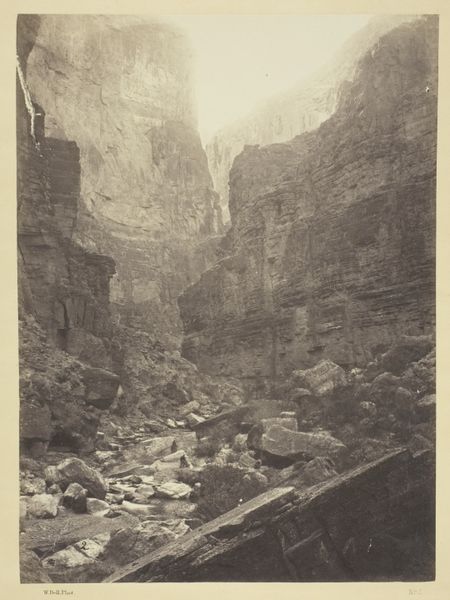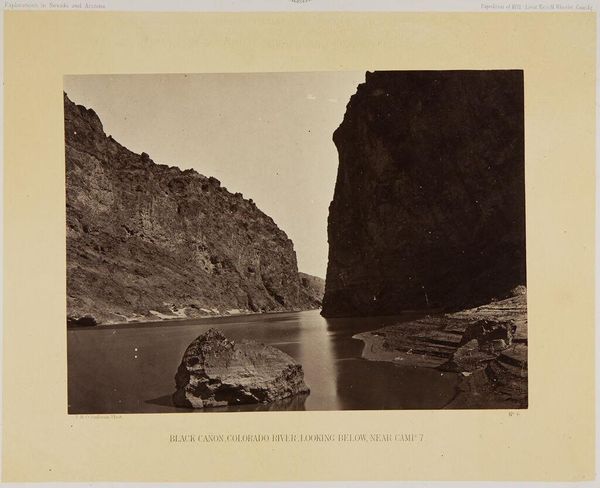
print, photography, albumen-print
#
16_19th-century
# print
#
landscape
#
photography
#
monochrome photography
#
hudson-river-school
#
albumen-print
#
realism
Dimensions: 20.4 × 27.5 cm (image/paper); 39.3 × 49.8 cm (mount)
Copyright: Public Domain
Editor: This albumen print by William Bell, “Colorado River, Mouth of Kanab Wash, Looking West” from 1872, presents such a striking, almost monumental landscape. The monochrome tones create a sense of timelessness and stark beauty. The vastness of the canyon dwarfs everything. What's your take? Curator: It truly invites a kind of hushed reverence, doesn’t it? What captures me is how Bell frames not just the sublime, geological grandeur – those towering walls hinting at immense spans of time, eroded slowly by water – but also invites you to ponder your own relative fleetingness. He presents a tangible feeling that every rock tells a story. Do you notice how the river serves as both a focal point and a connector? Editor: I do. The way the river winds into the distance pulls you in. But it also emphasizes the canyon's depth and how small the river is in comparison. Almost like a silver thread running through the rough fabric of the earth. Why photograph this specific spot, at this specific time? Curator: Well, Bell was part of a survey team exploring the American West. Think about that for a moment. This image wasn't just about aesthetics; it was about documentation, mapping, and staking a claim to the unknown, all bundled together in a rather unwieldy photographic process. Every photograph from these surveys becomes, unintentionally, an act of colonization, doesn’t it? Editor: So, it's beautiful and problematic, a record of exploration and also… appropriation? Curator: Precisely! It embodies those contradictions. What begins as documentary photography becomes intertwined with ideas about manifest destiny. It captures a place but also subtly alters its narrative, turning it into something “discovered,” even when it clearly wasn't. Makes you wonder who's really seeing whom in this photograph. Editor: That's a perspective I hadn't considered before. Seeing this as more than just a landscape, but as a complex document of its time, adds so much more depth. Curator: Absolutely! I like to see how things can simultaneously reveal and conceal their histories. It makes things way more interesting, and trickier, don't you think?
Comments
No comments
Be the first to comment and join the conversation on the ultimate creative platform.
